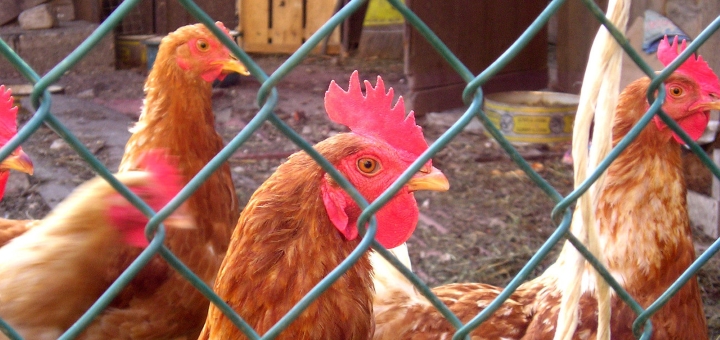Keeping chickens in your garden: what you need to know

With debates around sustainability, self-sufficiency and food provenance all now in the mainstream, there’s never been a more popular time to think about growing – or rearing – your own food.
Local allotments associations can barely keep up with demand, while there are believed to be well over half a million chicken keepers in Britain. However, before you start paying a visit to your local poultry keeper or scouring the Internet for chicken coops, it’s worth doing your homework to avoid any pitfalls and to make sure that chicken keeping really is for you.
Creating a home
First up, be aware that getting started as a chicken keeper isn’t cheap. To keep your brood safe from both bad weather and the threat of foxes you’ll need to invest in a coop or hen house. In a back garden, you’ll probably also want a fenced area (a run) adjoining the coop where your chickens can wander more freely.
You can find poultry supplies and equipment, such as chicken wire, for sale both online and in the big DIY stores, but make sure you buy enough both to fence the run and roof over it – keeping the chickens in and predators out. All in all, don’t expect your chicken housing to give you much change from £500.
Sourcing the hens
Then, of course, you’ll need to buy the hens themselves. Here, there’s nothing better than visiting a reputable poultry keeper in person, so that you can assess the quality and health of the hens and ask any pertinent questions.
Alternatively, if you fancy doing your bit for animal welfare, organisations like the British Hen Welfare Trust find caring homes for former battery hens. There won’t necessarily be a charge for the hens, but you will normally be expected to make a donation to help such organisations continue their important work.
Day-to-day care
As you’d expect, keeping chickens will incur ongoing costs for bedding – usually wood shavings – and for good quality feed in the form of layers pellets or mash. You’ll need to keep the hens’ area clean too, using a cleaner especially designed for poultry sheds.
When you acquire your hens, it’s likely that they will have had the necessary vaccinations, but be sure to check whether these last for the birds’ lifetime. Either way, you will need to make sure that your chickens are also regularly wormed, and treated to prevent against fleas and lice.
Keep within the rules
The last thing you want is to build your coop and collect your hens, only to discover that you’re not allowed to keep livestock on your property in the first place.
Though there are no national regulations specifying what is and isn’t acceptable, many local authority tenancy agreements require anyone renting a council house to ask permission if they wish to keep poultry – partly to ensure that the birds have a suitable environment in which to live, but also to avoid any issues that might cause a nuisance for neighbours.
Similarly, even if you own your property or are renting from a private landlord, it’s possible that your deeds or contract will have something to say on the matter of keeping livestock – if in doubt, it doesn’t hurt to check.
It’s unlikely to affect a newbie chicken keeper, but be aware too that it’s a legal requirement for any premises with 50 or more birds to be registered on the GB Poultry Register, a joint initiative between Defra in England, and the Scottish and Welsh Governments. In Northern Ireland the situation is a little different, and all keepers of poultry – however many birds they own – must register their birds with the Department of Agriculture and Rural Development (DARD).
The benefits of chickens
For all the costs and potential pitfalls that you should be aware of, the reality, of course, is that keeping chickens is in many ways a labour of love.
It’s not about having a supply of cheaper-than-supermarket eggs (they’re not), or about chicken keeping being a breeze (it’s not that either), but about a sense of doing something good – the feeling of wellbeing and enjoyment as you see your own hens strutting around the garden; being able to teach your children about where their food comes from; or admiring the gorgeous yellow yolks on your plate as you enjoy fresh, quality eggs that were only laid hours earlier.
So, as long as you understand the pros and cons, and are clear about going into chicken keeping for the right reasons, you’re well placed to take the plunge: recognising that looking after your hens won’t be cheap or easy, but that it will be worth it for the pleasure and rewards that it brings you and your family.
Photo credit: Iliana at Freeimages
This article was originally published at Sapling.info






